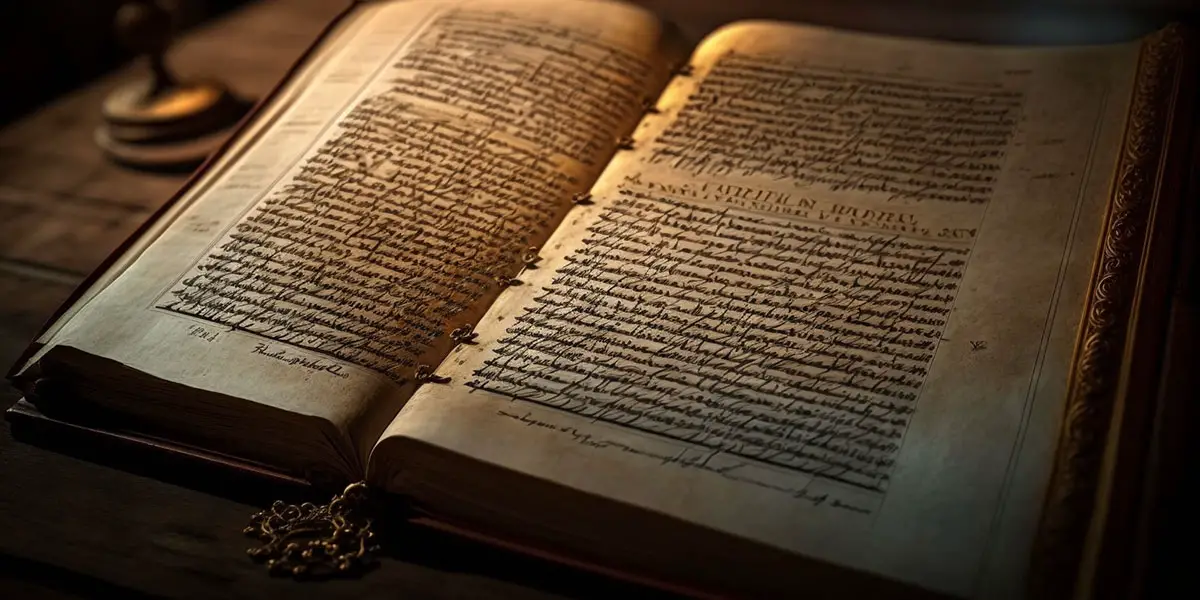Alchemy, the precursor to modern chemistry, has always had ties to religion and spirituality. In this article we are going to look at the question: what religion is alchemy?
Alchemy goes back to at least ancient Egypt, and was practiced by Muslims and Christians during Medieval times. It is not a part of any one religion, but comes from the philosophy of Hermeticism. Throughout history alchemists not only lived in religious societies, but were active in their respective religions.
Religion and alchemy were often opposed throughout history as well, with the Catholic Church considering Hermetic philosophy to be heresy. Alchemists were even burned alive at times by the Inquisition.

The Origins of Alchemy
The roots of alchemy can be traced back to ancient Egypt, and was passed down to Arabia, Greece, Rome, and eventually Europe. The word alchemy comes from the Egyptian word “chem” or “qem” which means black, and refers to the rich soils of the Nile river. Later we see the Arabian phrase “al-kimia”. After Alexander the Great conquered Egypt, we find references to “chemeia”, a Greek word that means “metal pouring”, in reference to the practice of creating metal alloys by melting and combining metals.
Through the process of discovering how to turn base metals into gold, alchemists believed that they could find their own salvation from matter. They sought to dissolve their own physical matter and spirit from the prime matter of the universe. This process, which they called the magnum opus, was believed to lead to the discovery of immortality.
The Religion of Ancient Egypt
For thousands of years in ancient Egypt a form of polytheism was practiced. This religion does not have a name, and varied by time and place, but essentially involved worshipping a pantheon of deities. It was this theological backdrop in which the early alchemists did their work. Some even claimed that their knowledge of alchemy was passed to them from their gods. Notably, the deity Thoth, depicted as a man with the head of an ibis bird, was credited with writing the alchemical books in which they based their work upon. Thoth was the god of writing, science, and invention, and the writings attributed to him are known as Hermeticism.
Alchemy is a Branch of Hermeticism
Hermeticism is an ancient system of philosophy based on several key literary works, which are attributed to the author Hermes Trismegistus, a syncretic amalgamation of Thoth (Egyptian god) with Hermes (Greek god). Read more about Hermes Trismegistus here. Hermeticism came into prominence in the first centuries AD. The traditions of alchemy handed down from previous generations were included in these collections of writings, along with elements of Jewish and Christian mysticism and Hellenistic philosophy. To read more about the seven principles of Hermeticism, click here.

Important Principles of Alchemy
The alchemists were seeking the Philosopher’s Stone, in order to be able to transmute metals, and ultimately find eternal youth. They sought to turn base metals such as lead, into “noble metals”, particularly gold. They were seeking the elixir of immortality, and the discovery of a panacea, a cure to all disease.
In alchemy, salt, sulphur, and mercury are known as the Three Principles, also called Tria Prima. It is believed that all matter can be divided into these three fundamental elements through alchemical processes.
Salt is the base matter, and the principle of fixity and in-combustibility. It is whatever remains fixed in fire. Sulphur connects the high and the low, and denotes expansive force, evaporation, and dissolution. It is whatever remains inflammable. Mercury is the spirit of life, and is able to transcend solid and liquid states. It is whatever is neither fixed nor inflammable, and rises in vapour without being burned.
The alchemists sought to turn base metals into gold because gold represents renewal, regeneration, and the highest development in nature. Lead, the basest metal, represented sin, and the forces of darkness. Both metals were considered to be combinations of the four elements of air earth, fire, and water, along with the Tria Prima (salt, sulphur, and mercury). But the alchemists believed that by recombining the four elements in a different way, they could transmute lead into gold. This transformation required a special magical substance, which they called the Philosopher’s Stone.
Alchemy in Islam
Interest in alchemy, and Aristotelian philosophy flourished in the Islamic world between the 8th and 14th centuries, in an era known as the Islamic Golden Age. It began with the creation of the House of Wisdom in Bagdad, which was the largest city in the world at the time. It was a place for Islamic scholars from around the world would gather to study mathematics and philosophy.
One of their main focuses was on organizing and translating all known classical knowledge into the languages of Syriac and Arabic. This period came to an end in 1258, when Mongolians invaded in the Siege of Baghdad.
In Islam there are the Quranic injunctions, which are a guide on how to conduct oneself, and are based on the actions of Mohamed. They teach to practice good deeds and refrain from bad deeds. Within the Quranic injunctions great emphasis is placed on acquiring knowledge, and value is placed on education. This religious influence in the Islamic empire was the environment in which the Islamic alchemists lived.
During the 7th and 8th centuries, Islamic scholars were deeply interested in alchemy, studying and translating Hermetic and Gnostic texts. Initially their focus was on accurate translations, though eventually they began to further explore alchemy in their own right, fitting it into their monotheistic world view. They developed the concept of alchemy as a path to uniting with the transcendent god. To the Islamic alchemists, it was a transformative process of the psyche, and they used rich and poetic language to describe this process.
According to some researchers, the first Islamic alchemist was a man named Khālid ibn Yazīd, a prince who was born into a powerful Islamic ruling family, and lived from 668-704 AD. He wrote many books on the subject of alchemy, as well as wrote poetry. He was taught alchemy from a Christian named Marianos of Alexandria.
Another important figure in the history of alchemy in the Islamic world is Jābir ibn Ḥayyān, who is known as the father of chemistry. Amongst his innovations was a systemized classification of chemical substances, and detailed instructions on various chemical processes for isolating substances. His many books were later translated into Latin.

Alchemy in Christianity
In the 12th century Europe experienced a flourishing of interest in activity in alchemy, as alchemical books from the Islamic world were translated into Latin. This was shortly after the Crusades, a series of wars between Christian and Muslim forces, mostly in the Near East, where Jerusalem is, but also in Spain and elsewhere. The renewed interest in Europe during the time also included the rediscovery of Aristotelian ideas, and would go on to form the basis of modern science. The concepts of alchemy were blended with Christianity, and the pursuit of dividing matter and spirit so that the alchemist could become a pure element of the universe, evolved into a recognition of that pure element as being Christ.
The 12th century also saw the beginning of the Medieval Inquisition, which lasted from 1184-1230s. The Inquisition was a part of the Catholic Church, and their role was to suppress heresy. They charged hundreds of thousands of people with heresy, executing thousands for their heretic acts. In this dangerous and intolerant environment, alchemists became highly secretive of their work, often writing in code.

Roger Bacon: The Alchemist and Franciscan Friar
An important figure in the history of alchemy is Roger Bacon, a philosopher who live in England from 1219 to 1292. An alchemist and philosopher in the tradition of Hermeticism, he was also a Franciscan friar. The Franciscan Friars are a group of monks Founded in 1209 by Saint Francis of Assisi, and belong to the Catholic church. They work as pastors and chaplains in the church, and also often have other jobs, such as lawyers or doctors.
Roger Bacon was an early innovator in empiricism, which is a method or process of study based on facts and evidence, emphasizing the importance of what the senses can perceive. He was an advocate for doing experimental research. He was born into a wealthy family, and invested considerable money into his research, winning many accolades in his lifetime. Amongst other things, he is recognized as the first European to describe how to make gunpowder.
Eventually Roger Bacon was imprisoned by the other Franciscan monks for his controversial ideas, particularly about alchemy and astrology.

Alchemy in the Bible
While the Bible does not directly refer to the practice of alchemy by name, it is full of references that are clearly alchemical in nature. Numerous references to gold and silver appear throughout the Bible, including descriptions of metal being melted in fire. There are also many descriptions of replacing or even transmuting one substance with another. For example:
Isaiah 60:17
Instead of bronze I will bring gold, and instead of iron I will bring silver; instead of wood, bronze, instead of stones, iron. I will make your overseers peace and your taskmasters righteousness.
Proverbs 27:21
The crucible is for silver, and the furnace is for gold, and a man is tested by his praise.
Revelation 3:18
I counsel you to buy from me gold refined by fire, so that you may be rich, and white garments so that you may clothe yourself and the shame of your nakedness may not be seen, and salve to anoint your eyes, so that you may see.
To read more about the history of the Bible as well as the holy books of Hinduism, Judaism, and Islam, click here.
Alchemy in Judaism
Generally speaking, academia agrees that the lineage of alchemy can be traced from Hellenistic Egypt through the Islamic world and into Christian Europe, and little attention is given to the role of Judaism. However newer research shows that there were Jewish alchemists, and alchemical manuscripts written in Hebrew have been discovered. Given the interest within Judaism of mysticism, including the practice of Kabbalah, these discoveries are not surprising.
In 1404 Alchemy was made Illegal by King Henry IV of England
In a new law called The Act Against Multiplication, King Henry IV formally made creating precious metals such as gold and silver illegal. Since society used gold and silver coins as money, there was concern that alchemists could create money out of thin air, debasing the currency and becoming extraordinarily wealthy. You can read more about Alchemy being made illegal here.
The Mystery of The Rennes Chateau
The Rennes Chateau is a commune in Southern France. In 1890 a poor parish priest named Bérenger Saunière allegedly discovered the Philosopher’s Stone, enabling him to turn base metals into gold. The true source of his wealth is shrouded in mystery, but reports of his sudden wealth do appear to be legitimate. Legends abound that he left clues throughout the chateau and surrounding region, and every year tens of thousands of tourists visit, hoping to discovery the secret.

Are Alchemists Religious?
The short answer to this question is yes, alchemists were religious, however alchemy has never belonged to a specific religion. Rather, it has been practiced in a variety of religious contexts, notably in the Islamic world during Medieval times. It is also considered a part of Hermeticism, which is more of a system of philosophy, rather than a religion. Some alchemists probably attended religious ceremonies out of social obligation, while others were devoutly dedicated to their faith. But despite the differences in religions amongst the many people who practiced alchemy throughout history, there is a common tie that connects them all. Perhaps with the exception of the odd alchemist who was doing it solely in pursuit of wealth, alchemists have always had a belief in spirit, since the act of changing base metal in gold has always been about the transmutation of oneself. And that makes alchemists religious.
Recommended Reading
If you’d like to continue researching alchemy or any of the other topics discussed on this website, you can see which books I recommend by clicking here.
